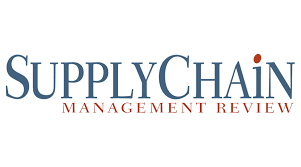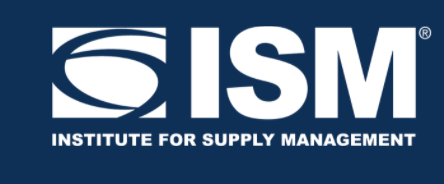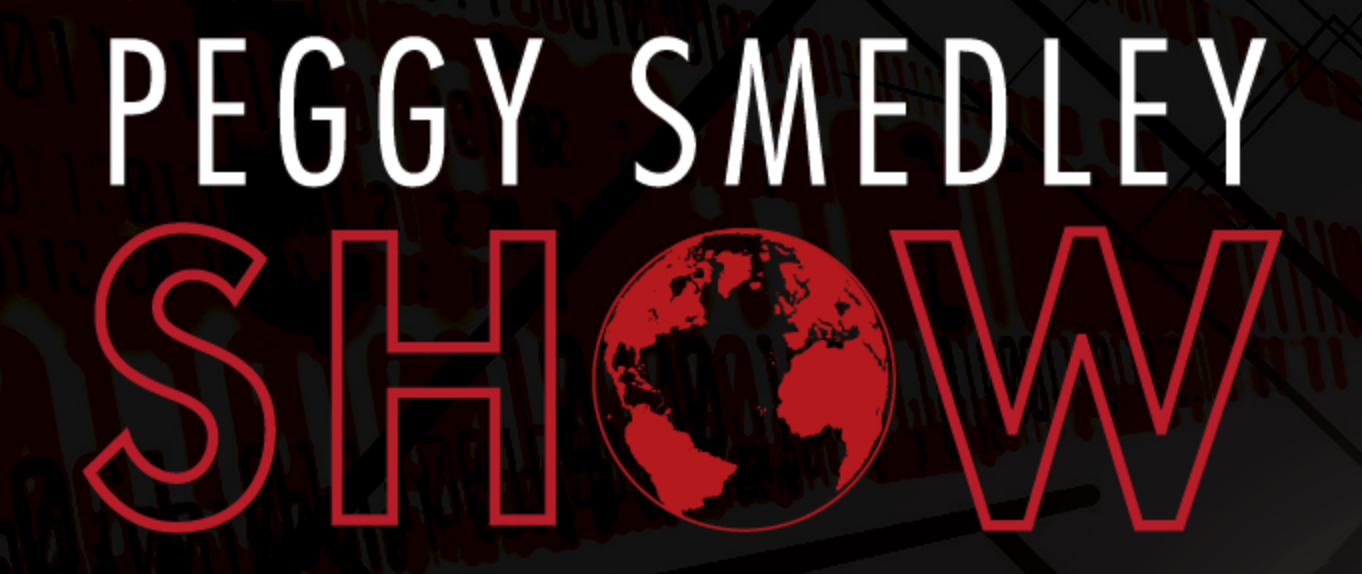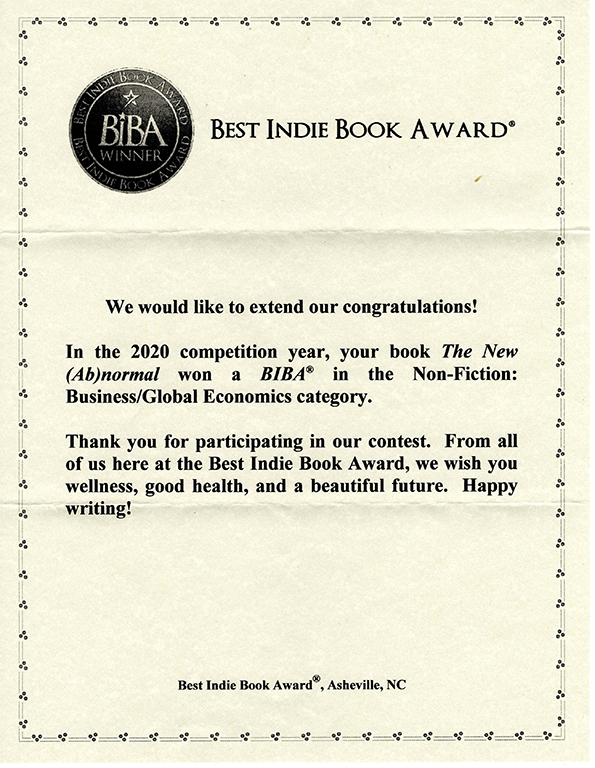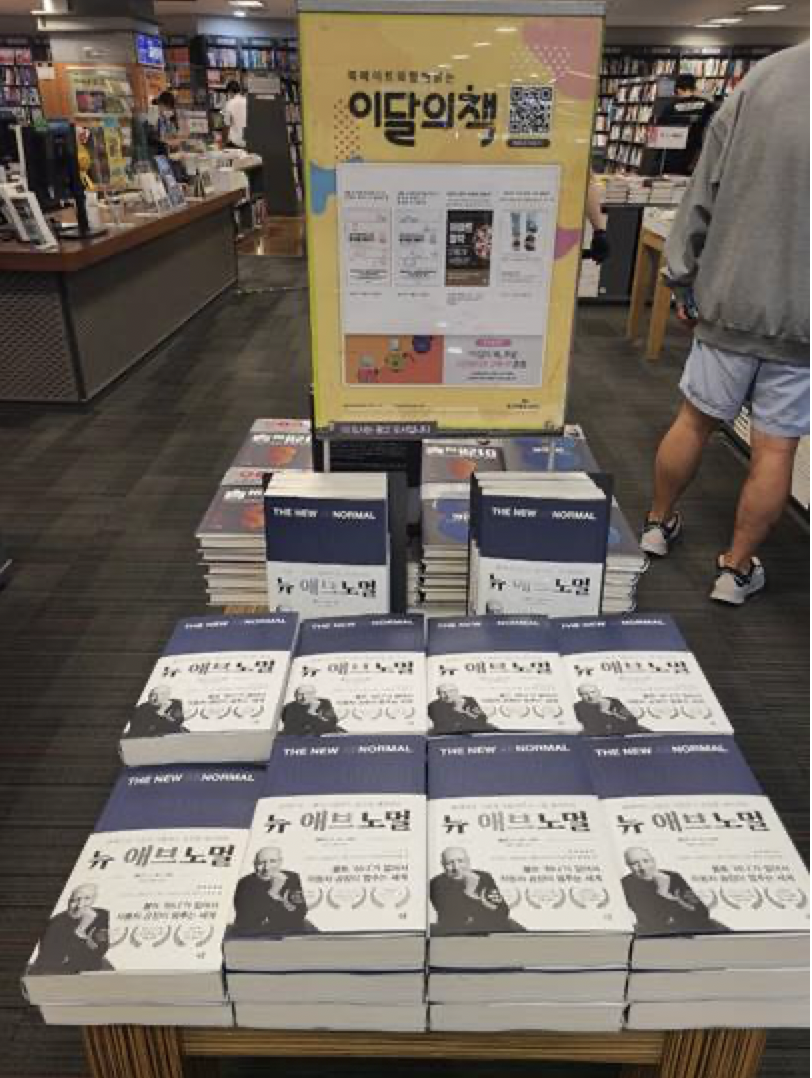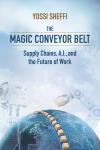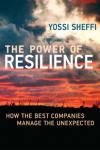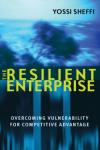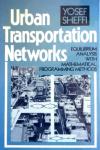 Much has been written about Covid-19 victims, how scientists raced to understand and treat the disease, and how governments did (or did not) protect their citizens. Less has been written about the pandemic’s impact on the global economy and how companies coped as the competitive environment was upended.
Much has been written about Covid-19 victims, how scientists raced to understand and treat the disease, and how governments did (or did not) protect their citizens. Less has been written about the pandemic’s impact on the global economy and how companies coped as the competitive environment was upended.
In his new book, The New (Ab)Normal, MIT Professor Yossi Sheffi studies how businesses grappled with the chaos of the pandemic. He also explores what enterprises are likely to do to survive and thrive after the pandemic subsides.
The Stage is Set by Covid-19
In Part 1 of the book, “What Happened,” the author looks at how companies fought to mend the global economic fabric even as the virus ripped more holes in it.
Part 2, “Living with Uncertainty,” views the crisis through a supply chain risk management lens derived from Yossi Sheffi’s previous books The Resilient Enterprise and The Power of Resilience. This perspective shows how companies create corporate immune systems to quickly recognize and manage large-scale disruptions.
A New Abnormal after the Pandemic
The ongoing pandemic is creating a new normal in life, work, and education—covered in Part 3, “Adjustment Required.” Consumer fears about the contagion combined with government mandates require businesses in industries such as retail, hospitality, entertainment, sports, and education to create “safe zones” for workers and customers. Another new normal is working from home. Remote working enables individuals to live anywhere and companies to recruit talent from anywhere. Education, especially higher education, faces a major disruption (and major opportunity) that is likely to shake the high-cost model of in-person education in favor of online or hybrid education. Regrettably, the book recognizes one trend accentuated by Covid-19--the growing inequality, and anticipates that the new normal will be more stratified.
Supply Chain Disruption is Accelerating the Adoption of Advancements
Many elements of the book – especially in Part 4, “Supply Chains for the Future” – show how the virus accelerated preexisting trends in technology adoption. Technologies such as the Internet of Things, artificial intelligence, and real-time data analytics provide visibility into supply chains. These innovations also enable contactless, paperless operations. Automation and robotics help companies handle surges in demand and maintain productivity in sparsely populated offices and factories. Convenient communications platforms facilitate telecommuting. Although these technologies were used to deal with the immediate impacts of Covid-19, Sheffi also explains how they will have long-term benefits for the performance of supply chains and businesses.
But the Digital Cannot Exist without the Physical in Logistics
Covid-19 affirmed that we cannot simply turn off the economy and shelter in place. Civilization depends on supply chains to convert the planet’s bounty into the products we need and deliver those products to 7.8 billion human beings at a price they can afford. When a virus, a government edict, or a recession hits hard, it tests the people, processes, and systems that keep civilization running.
China was the epicenter of the pandemic. It was the first nation to be disrupted and the first to recover. Part 5 of the book, “Of Politics and Pandemics,” explains why reports that companies are abandoning China in favor of other offshore manufacturing centers do not reflect reality. The section also explores the reconfiguration of global supply chains. The author recognizes that as billions join the middle class worldwide, companies will need suppliers, operations, and sales outlets to support the new customer base.
The Future for Business Managers: A New Roaring ’20s?
Fundamentally, The New (Ab)Normal is about businesses trying to create a better future in a time of extreme uncertainty – a point emphasized in Part 6, “The Next Opportunities.” The outlook is not necessarily gloomy. The advance of technology is accelerating, and it's a trend that can level the playing field between small and large companies. Nimble small businesses are using a growing array of off-the-shelf cloud computing and mobile apps to deploy sophisticated technologies in their supply chains and customer interfaces.
The research for this book shows that flexibility and agility are vital to managing both the chaos of early 2020 and the pivot toward the changed future. Many supply chains have been strained to a breaking point by the crisis. Conversely, many enterprises rose to the occasion to create supply chains that delivered masks, sanitizer, ventilators, and a host of other sought-after and hoarded consumer products. Despite unprecedented disruptions in the food industry, its supporting supply chains held.
Sheffi observes that Covid-19 proved we are all dependent on each other. That revelation scared some toward trying to retreat into a fantasy world of total self-sufficiency. In contrast, supply chain professionals always knew that to continue to deliver the world’s goods all the operational pieces involved have to be connected and synchronized.
As The New (Ab)Normal highlights, the pandemic represents an unparalleled opportunity for supply chains to serve humanity during this global crisis and beyond as the world plots a new future.
Endorsements
"The pandemic has brought to everyone’s attention the importance of supply chains. In any industry, including my own, flexibility and adaptability have become critically important.Yossi Sheffi's thought-provoking book shows how companies have leveraged these attributes and what competitive strategies will be effective in a post-pandemic world."
— Hamid Moghadam, Chairman & CEO, Prologis
"“A must-read for all corporate leaders whose businesses have been touched by the pandemic. Dr. Sheffi provides a timely and necessary synopsis of the challenges facing all industry sectors, and how these challenges are alleviated by a healthy supply chain. It reaffirms what many of us know to be true – that even amid trying times, the businesses who choose to explore, embrace and invest in innovation will lead the way forward.”
— Mark B. Rourke, Chief Executive Officer and President, Schneider National, Inc.
"As one of the world's preeminent experts on resilience, Sheffi has a track record of trailblazing. This age-defining book is his latest triumph. There is an urgent need for incisive and well-supported thinking on how companies can emerge stronger from Covid-19. This book delivers. Essential reading for any executive."
— Hau Lee, The Thoma Professor of Operations, Information & Technology, Stanford Graduate School of Business.
"Any executive looking for guidance on how the Covid-19 pandemic is redefining supply chains should read this book."
— Rick Blasgen, CEO Council of Supply Chain Management Professionals
"In the early stages of the pandemic, demand surged, and production halted in many parts of the world. In his fresh and insightful book, Yossi Sheffi examines how supply chains flexed in response to these challenges—and how the COVID-19 pandemic will continue to shape the business landscape into the future. It is a must-read for anyone seeking insights into how to lead during this abnormal time and beyond."
—Thomas J. Donohue, Chief Executive Officer, U.S. Chamber of Commerce
"While there are several unknowns about what a post COVID-19 world will look like and how business will operate over the long term, there is one thing we do know, it will be different. The pandemic has forced companies to take a hard look at what worked, what did not and what needs to change in the future. With this book, Yossi does a great job of gathering that institutional knowledge and presenting a blueprint for businesses in a post-COVID world."
— Lynn Torrel, Chief Procurement and Supply Chain Officer, FLEX

